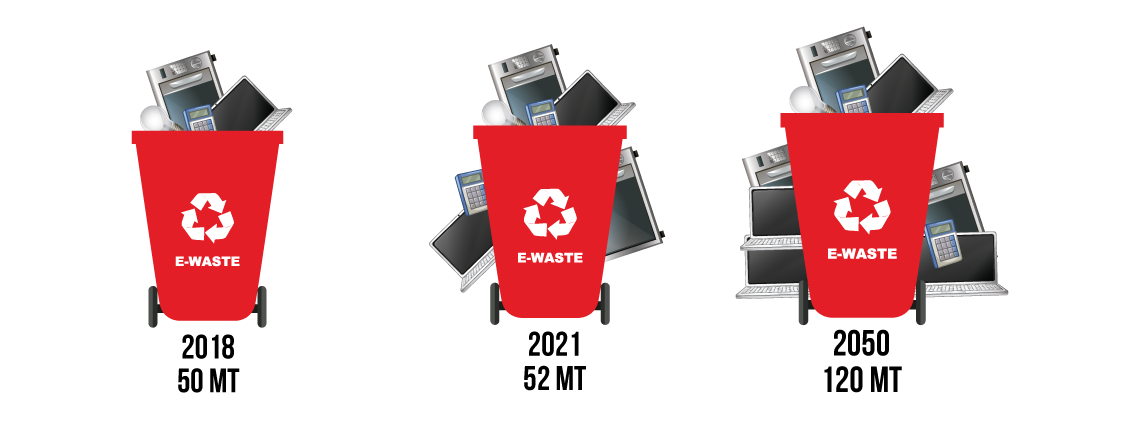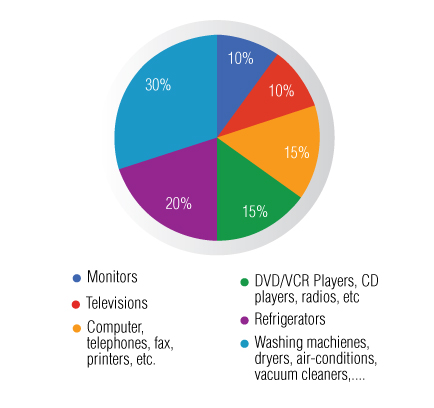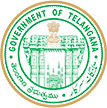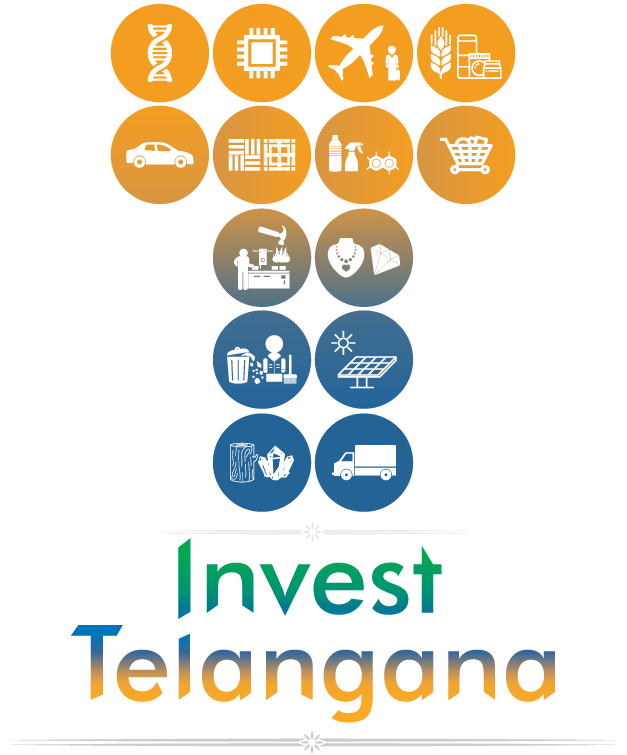
Global
As technology advances and more devices are built, the number of obsolete or damaged devices in need of disposal is growing as well. The issue of global e-waste is a mounting concern.

Lowering the amount of electronics entering the waste stream and improving end of life handling are essential for building a more circular economy, where waste is reduced, resources are conserved and are fed back into the supply chain for new products. If we look at the material value of our spent devices, globally this amounts to $62.5 billion, three times more than the annual output of the world’s silver mines, according to data in the new Global E-Waste Report. Only 20 per cent of global e-waste is recycled. A UN report indicates that due to poor extraction techniques, the total recovery rate of cobalt (the metal which is in great demand for laptop, smart phone and electric car batteries) from e-waste is only 30 per cent. More than 120 countries have an annual GDP lower than the value of the growing pile of global e-waste.

India
E-waste is growing at a compound annual growth rate (CAGR) of about 30 percent in the country. ASSOCHAM, one of the apex trade associations of India, estimated that e-waste generation was 1.8 MT per annum in 2016 and would reach 5.2 MT per annum by 2020.
India now has 178 registered e-waste recyclers, accredited by the state governments to process e-waste. But many of India’s e-waste recyclers aren’t recycling waste at all. While some are storing it in hazardous conditions, others don’t even have the capacity to handle such waste, as per by the report of Union Environment ministry.
The Ministry of Electronics and Information Technology (MeitY) has initiated an e-waste awareness programme under Digital India, along with industry associations from 2015, to create awareness among the public about the hazards of e-waste recycling by the unorganised sector, and to educate them about alternate methods of disposing their e-waste. Since India is highly deficient in precious mineral resources (whereas untreated e-waste goes to landfill), there is need for a well designed, robust and regulated e-waste recovery regime which would generate jobs as well as wealth.
The world’s e-waste is a huge problem. It’s also a golden opportunity.
Telangana
Telangana launched a comprehensive set of policies since early 2016 to drive development of various sectors of Information Technology and Electronics. Having one of the fastest growing technology sectors in the country also makes Telangana a leading consumer of electronic products. A recent study by ASSOCHAM estimates that India produces 1.3 Milion Tons of e-Waste per annum with an annual growth rate of 25%, with Hyderabad being the sixth largest generator amounting to 35,000 MT. The Government of Telangana State is playing a proactive role to ensure sustainable development by working with the State Pollution Control Board, mainly by creating awareness and nurturing a culture of reusing and recycling.
- To encourage organized e-waste management in the state, Telangana is providing the following incentives:
- a) Incentives for Recyclers, Refurbishers, Dismantlers, and Collection Centres
Capital Investment Subsidy: A subsidy of Rs. 10 million will be provided for a minimum capital investment of Rs. 50 Million for the first 5 recyclers and refurbishers. For dismantlers and collection centers, Rs. 3 Million will be provided as a subsidy for a minimum capital investment of Rs. 10 Million, for the first 5 collection centers and 5 dismantlers.
Training Subsidy: Training subsidy of Rs. 1,000/month/person for 3 months will be provided for a maximum of 1000 people.
Reimbursement of Municipal/Panchayat Taxes: Reimbursement of municipal taxes for the first three years of operation for the first 5 units in each town.
- b) Incentives for Bulk Consumers Subsidy on purchase of refurbished products: The Government of Telangana will provide a subsidy of 10% of the total expenditure incurred on the purchase of refurbished goods subject to a minimum of 100 units procured and maximum subsidy of Rs. 200,000.
For projects of strategic importance, a tailor-made package of incentives will be designed.
There is immense potential to retrieve minerals like gold, silver, copper, and palladium and setting up modular micro-factories whenever e-waste is stock filed.

E-Waste Partner Ecosystem


